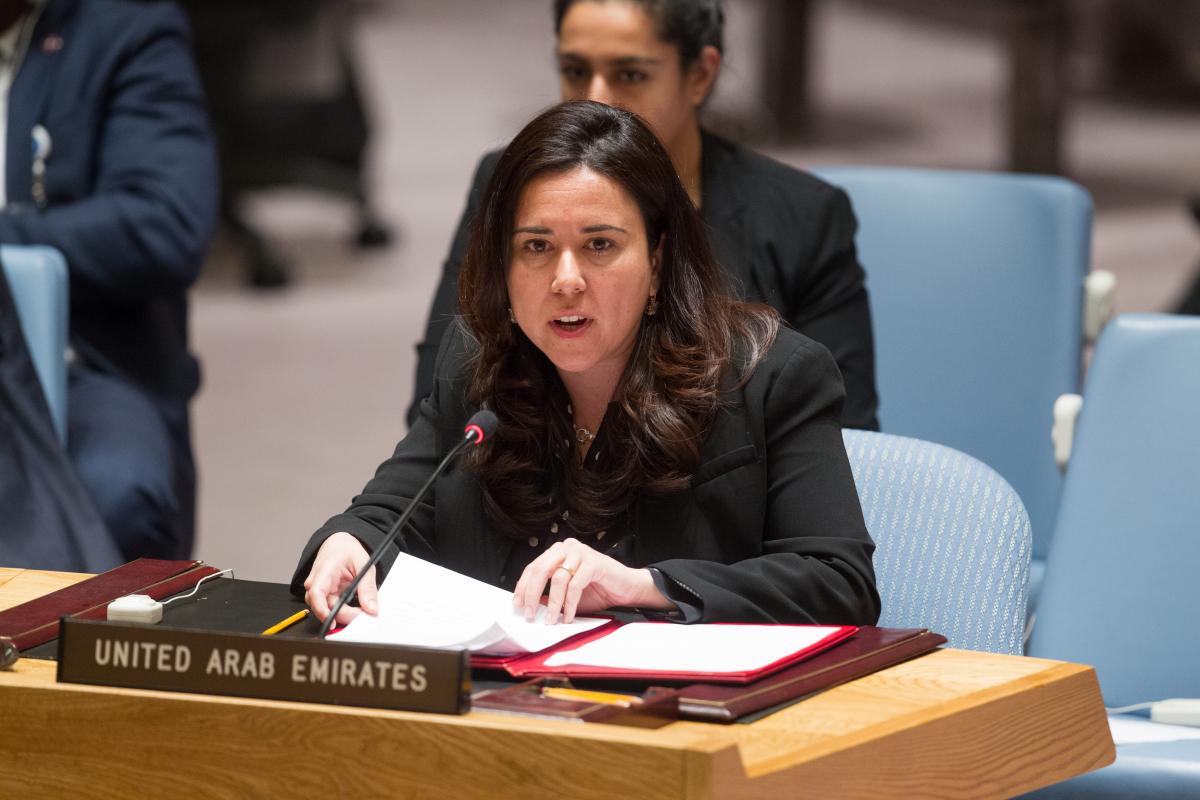On Wednesday, 15 April, Ambassador Lana Zaki Nusseibeh, Permanent Representative of the United Arab Emirates to the United Nations, participated in the open debate held by the Security Council on the occasion of the release of the Secretary General’s Annual Report on Conflict-related Sexual Violence for the year 2015. In her speech, Ambassador Nusseibeh commended the extraordinary efforts made by the Secretary-General and Mrs. Zainab Bangura, the Special Representative of the United Nations Secretary General on Sexual Violence in Conflict, in this area.

Ambassador Nusseibeh also praised Jordan for convening this Open Debate under its presidency especially at this time where “the Middle East faces a rising tide of extremism and unrest”. She welcomed SRSG Bangura’s upcoming mission to the Middle East, expressing hope that her visit would contribute to creating a region-wide strategy to address conflict-related sexual violence within the context of extremism, and affirmed the UAE’s readiness to support the SRSG on this critical mission.
Ambassador Nusseibeh also welcomed the progress made by the international community in combating conflict-related sexual violence and said that it was only eight years ago that the Security Council formally recognized the use of conflict-related sexual violence as a matter of international peace and security. She referred to this crime as “a weapon of war used for centuries” and recalled that in the same Security Council Chamber, the international community had created the mechanisms to help national authorities confront perpetrators and support the victims of these crimes.
She praised the Secretary-General for going a step further in his report by recognizing sexual violence as a far more than “a tactic of war, but a tactic of terror”. She also expressed the UAE’s support for the Secretary General’s recommendation to integrate the issue of conflict-related sexual violence into the work of relevant Security Council Sanctions Committees, as part of the designation criteria for the imposition of targeted measures.
In her statement, Ambassador Nusseibeh referred to the one million US dollars contribution made by the UAE government to the UN Action’s Multi Donor Trust Fund, specifically to support the important work being undertaken by the Team of Experts in their efforts to build capacity on a national level in the rule of law.
Ambassador Nusseibeh urged the SRSG and Member States to pursue the agenda of combatting conflict-related sexual violence comprehensively, by promoting women’s participation in the design and implementation of programs and supporting their leadership in local contexts. She said, “The education and empowerment of women is our strongest weapon against extremism and conflict related sexual violence.”
She added, “A full-fledged response to combating conflict-related sexual violence will only be possible with the full implementation of the objectives outlined in 1325, in practice, and not simply in theory.”
Ambassador Nusseibeh also emphasized that the international community must focus its attention not only on dealing with the aftermath of these crimes, but also in preventing their occurrence in the first place. In this context, she shared a number of recommendations that resulted from a previous panel discussion convened by the UAE in partnership with UN Women and the Georgetown Institute for Women, Peace and Security, in contribution to the Global Study on UNSCR 1325, which included the use of digitizing early-warning mechanisms to enable women and girls to protect themselves from conflict-related sexual violence before their occurrence, enabling victims to safely and effectively report incidents of sexual assault in conflict zones, and improving women’s voice and agency in transitional stages and community development.
Ambassador Nusseibeh concluded her statement by emphasizing that the UAE supports the efforts of the UN and its international partners, and urged that 2015 to be the year where the agency and participation of women and girls are placed front and center of thewomen, peace and security agenda because this is not only an issue of gender, but a matter of international peace and security.
